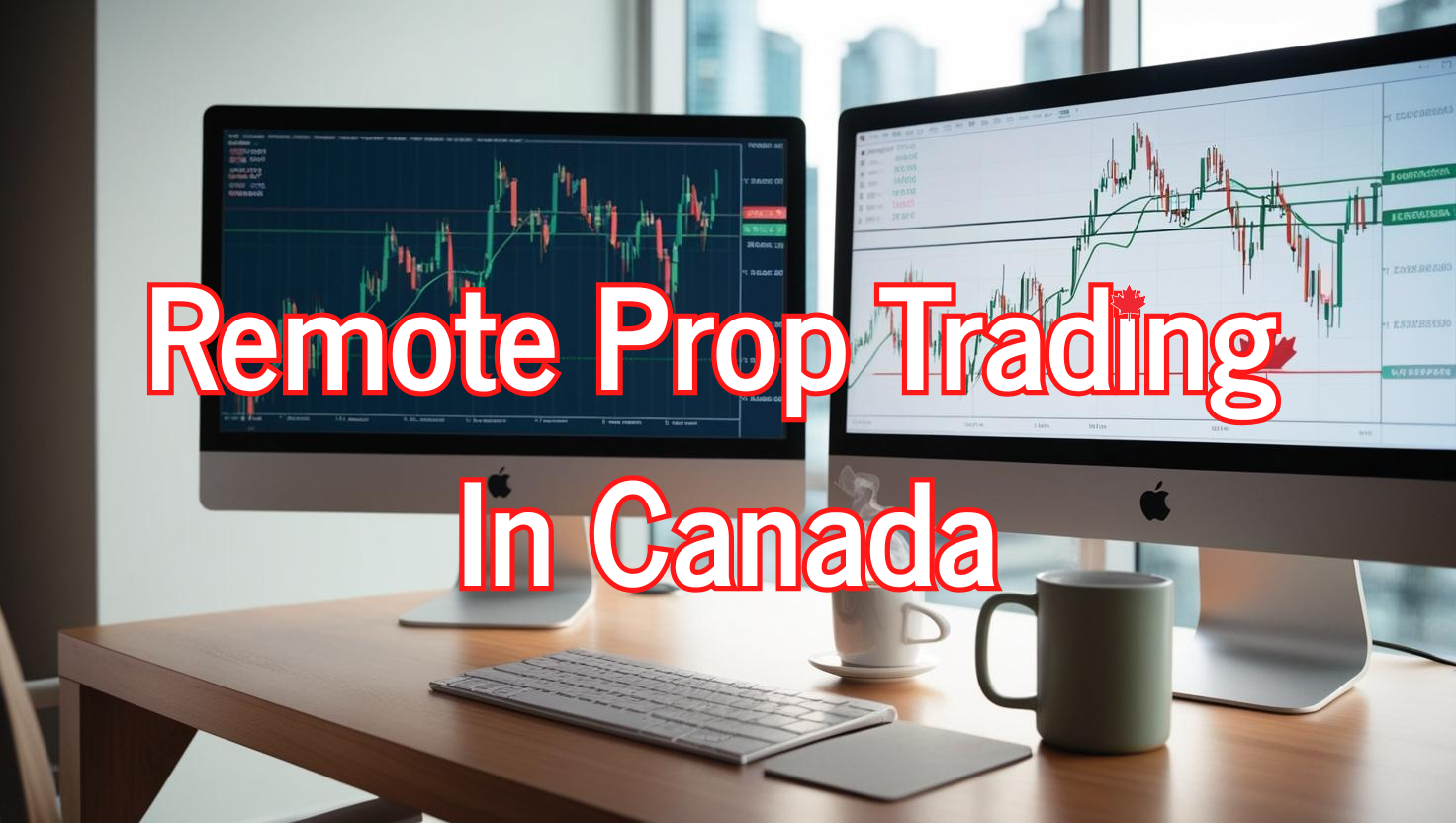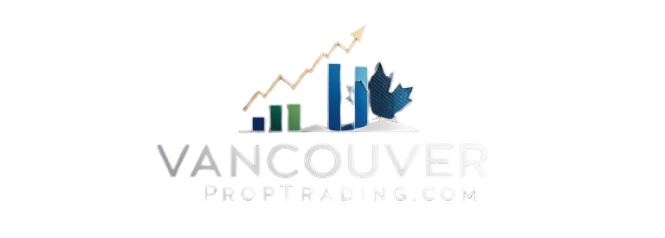Remote Prop Trading in Canada: A Smarter Way to Trade

In today’s digital economy, the trading floor has gone virtual—and Canadian traders are in a perfect position to benefit. Remote prop trading allows skilled individuals to trade global markets using firm capital, all from the comfort of their home office. For Vancouver-based traders, the opportunity is especially appealing: low overhead, access to international firms, and full flexibility.
But how does remote proprietary trading actually work? Is it legal in Canada? And what do you need to succeed? Let’s break it all down.
What Is Remote Prop Trading?
Remote proprietary trading—or remote prop trading—is a model where traders use a firm’s capital to trade markets like stocks, options, forex, futures, or crypto without ever setting foot in a physical office. Instead, everything is done online: evaluation, onboarding, account management, and execution.
You trade. The firm funds you. You split the profits.
Some firms charge for training or evaluations, while others offer capital based on demo performance or structured challenges. Regardless of the model, the key benefit is the access to leverage without risking your own savings.
Why Remote Trading Works for Canadians
Remote prop trading is ideal for Canadians for several reasons:
- Geography: Canada has no central trading hub like New York or London. Remote access levels the playing field.
- Cost of Living: Vancouver and Toronto are expensive cities. Remote trading removes the need for commuting or relocating.
- Time Zone Advantage: Pacific Time offers access to both U.S. and Asian markets at convenient hours.
- Regulatory Gaps: While many U.S. and EU firms don’t serve Canadians due to securities laws, remote-friendly firms that comply or structure around these laws are more accessible.
What You Need to Get Started
To succeed as a remote prop trader in Canada, you’ll need more than a decent internet connection. Here’s a checklist:
- Fast and Reliable Internet: Aim for at least 100 Mbps with a wired connection if possible.
- Dedicated Workspace: A distraction-free zone with a minimum of two monitors is ideal.
- Trading Platform: Familiarity with MetaTrader, TradingView, Thinkorswim, or the firm’s proprietary software.
- Risk Management Plan: All reputable firms will expect you to manage risk proactively.
- Legal Awareness: Know what firms can and cannot legally offer Canadian traders. Always check regulatory disclaimers and with your local tax professional.
Pros of Remote Prop Trading
- No Need for Large Capital
You’re not risking your life savings. The firm funds you based on performance or evaluation. - Flexible Schedule
You can trade part-time or full-time, choose your hours, and work from anywhere in Canada. - Access to Global Markets
With the right firm, you can trade U.S. equities, global forex pairs, crypto, or even futures. - Performance-Based Progression
The better you perform, the more capital you’re given. It’s a merit-based model. - Location Independence
Whether you’re in downtown Vancouver, Victoria, or rural Alberta, you can trade under the same conditions as someone in New York or London.
Challenges to Watch For
While remote prop trading offers flexibility and opportunity, it’s not without pitfalls. Here are some common issues Canadian traders should be cautious of:
⚠️ Regulatory Restrictions
Many firms still exclude Canadian traders entirely due to strict and often unclear securities laws. Always confirm eligibility before applying.
⚠️ Lack of Transparency
Be wary of firms that don’t clearly disclose their fee structure, funding terms, or payout policies. If key information is hard to find—take it as a red flag.
⚠️ High-Pressure Evaluations
Some firms require you to pass trading challenges with aggressive timelines and narrow drawdown limits. This can create unnecessary pressure and lead to forced trades.
⚠️ Scams or Non-Compliant Operators
If a firm promises guaranteed payouts, fast profits, or “risk-free” funding—run the other way. Many of these firms are unregulated and may not be operating legally in Canada.
Choosing the Right Remote Prop Firm
Not all prop firms are created equal—especially when it comes to working with Canadian traders. Here’s what to look for when selecting a remote prop firm that’s reliable, supportive, and (most importantly) accessible from Canada:
✅ Clearly explained profit splits and transparent fee structures
Firms should openly display how much of your profits you keep and what fees (if any) apply to evaluations, data, or payouts.
✅ No mandatory capital deposit required
If a firm requires money upfront, be cautious. Look for firms that offer either refundable deposits or fully evaluation-based entry models.
✅ Track record of working with Canadian traders
Check online reviews, forums, or even the firm’s own FAQs to confirm that Canadians are accepted—and supported.
✅ Risk limits and evaluation rules that match your trading style
Some firms are stricter than others. Make sure their drawdown rules, scaling plans, and evaluation timelines align with how you trade.
✅ Responsive support and clear communication
Remote doesn’t mean silent. Choose a firm with a solid support team, active trader community, or access to mentorship.
✅ Legally structured to avoid issues with Canadian regulators
Firms that avoid capital pooling, stay away from “investment-like” structures, and don’t make performance guarantees are safer for Canadian residents.
✅ Professional-grade platforms and remote accessibility
You should be able to trade with platforms like MetaTrader, TradingView, or proprietary software that’s reliable, intuitive, and fast.
✅ Optional—but valuable—training and development resources
Some of the best firms provide access to training, coaching, or strategy libraries, helping you improve as you grow.
Examples of Remote-Friendly Firms
Here are a few prop firms that Canadian traders often work with—though always verify current policies:
- Maverick Trading – Options and stock-focused, offers remote onboarding and mentoring.
- Maverick Currencies – Forex, crypto, and futures with structured training and evaluation.
- Lux Trading Firm – Emphasizes long-term consistency and trader development.
- City Traders Imperium – Forex-only, with a reputation for transparency and remote flexibility.
- FTUK – Known for simple evaluation rules and remote trader accessibility.
Note: Availability may change based on evolving Canadian laws. Always read the fine print.
Is Remote Trading Right for You?
If you’re self-motivated, disciplined, and eager to build a career without the need to raise massive startup capital, remote trading could be a perfect fit. It’s particularly appealing for:
- Part-time traders looking to transition to full-time
- Experienced traders who’ve hit capital limits with their own accounts
- Beginners with a strong work ethic who want mentorship and structure
How to Avoid Pitfalls
Before joining any firm, do your research. Here’s how:
- Google firm reviews from Canadians
- Check their legal disclosures—especially regarding Canadian residents
- Contact them directly with compliance questions
- Ask for a sample contract or terms document
If a firm dodges these questions, move on.
Final Word
Remote prop trading is more than a trend—it’s a growing career path for Canadians seeking freedom, flexibility, and funding. While regulatory barriers still exist, they’re not insurmountable. With the right research, setup, and mindset, Vancouver-based traders can thrive in global markets—all without leaving their homes.
At Vancouver Prop Firms, we spotlight firms that support Canadian traders in a compliant, transparent, and empowering way. Whether you’re new to trading or looking to scale, our reviews and insights help you choose the right partner.
Explore our latest firm reviews today to start your remote trading journey the smart way.
